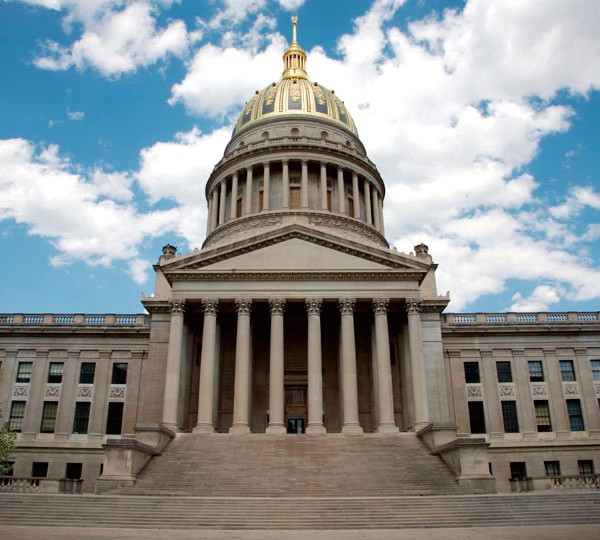MORGANTOWN — Incumbent Republican Amy Summers and Democrat George Abel both recently sat with The Dominion Post Editorial Board to discuss campaign issues and make their respective cases to represent the 49th District in the West Virginia House of Delegates.
Abel, formerly a 23-year member of White Hall City Council, said he wants to go to Charleston to speak for the “working people” of his district, whom he feels aren’t being adequately represented.
“I don’t like some things happening in Charleston the last couple years. I want to go down and voice my opinion and my constituents’ opinion,” Abel said.
Summers, an ER nurse, is seeking re-election for the first time. She said she initially ran for the seat after growing depressed at the direction the state was heading. Four years later, that depression has been replaced with excitement, and she wants to help keep the momentum going.
“I feel hopeful for once,” Summers said. “I don’t feel depressed. We have so many positive numbers right now with job growth and people wanting to come here. There are a lot of good things happening.”
Summers said the last few years have shown there remains plenty of “waste, fraud and abuse” in state government. She says transparency is one of her top priorities.
She points to recent controversies, like an inability to accurately calculate the size of the state’s vehicle fleet; the DHHR paying $30,000 monthly for office space in Fairmont it wasn’t using and the issues surrounding the West Virginia Supreme Court as evidence that more accountability is needed with the people’s money.
She said that transparency must extend to the flood of transportation money provided through Governor Jim Justice’s successful Roads to Prosperity bond issue
“When we have so many programs that need funded, and state workers that need pay raises who are worried about their insurance, we don’t need to be wasting money,” Summers said. “Every time we turn around we find something else. We’re seeing the way things were done in the past is not Ok.”
Summers also points to the addiction-fueled crisis in the state’s foster care system as one of her major issues.
“West Virginia is the number one state for having kids removed from the home. We have to help these kids. It’s sad, it really is,” Summers said, noting she’s pulling together a foster care forum likely to be held in November.
Abel said he too has concerns about state spending, particularly when a long-term answers for how to fund the state’s public employee insurance agency (PEIA) have yet to be nailed down.
“That’s something we need to address and look at long-term instead of taking a little bit from here and there,” Abel said. “My idea on that is a surcharge on the Marcellus Shale gas industry … I need to get more information on that, but I think that’s something I would be in favor of.”
He went to say that he also has issues with how Taylor County is represented in the list of state road projects resulting from the sale of road bonds.
“Taylor County passed that bond issue by quite a large margin, and so for Taylor County not to get much of that money back, I feel that’s unfair to the people of Taylor County,” Abel said. “There’s not much new construction down there and I hear people talking about the roads not being ditched or cleaned, brush hanging over the roads. I think that’s an issue.”
Abel noted that Taylor County is an example of a part of West Virginia where good-paying jobs are disappearing.
“We need more jobs. Better jobs. It’s difficult for a person making minimum wage to exist, take care of your children and pay rent or finance a home,” Abel said. “We need to do more to bring good jobs into West Virginia and Taylor County, for one.”
Perhaps no single issue has impacted West Virginia to the level of the ongoing epidemic of opioid addiction.
“It’s definitely a problem here in West Virginia. You look at some of the statistics where in some places in West Virginia they wrote more prescriptions than there are people in town,” Abel said. “I think there’s a misuse by doctors writing prescriptions for people. Plus I think it’s an income for some people … People are selling these drugs for income and that needs to be tightened up and policed much better.”
Abel went on to say that whether it’s opiates or methamphetamines, “I think we need to do a lot more as a state to confront the drug problem than we have right now.”
Summers, the vice chair of the Health and Human Resources Committee, explained that the last legislature passed nearly three dozen bills dealing with the opiate crisis.
As a part of that legislative push, she noted treatment centers have been removed from the certificate of need process without gutting regulatory oversight in an attempt to expedite their placement.
Along with increasing access to overdose reversal drug Narcan and eliminating the requirement for prior authorization for those seeking treatment, Summers said the legislature also put limits on pill counts when it comes to opiates.
“They were over-prescribing, and still over-prescribing, even with this huge crisis in front of them,” Summers said, explaining the new law only applies to patients presenting with new, acute pain and not chronic sufferers.
“If you come to the ER where I work with a sprained ankle, you’re not going to get more than a four-day supply of an opioid. It has been cut off and that’s what it’s going to be,” she said.
The 49th District is comprised of a large portion of Taylor County and one precinct in both Marion and Monongalia counties.
Tweet @DominionPostWV. Email bconley@dominionpost.com




